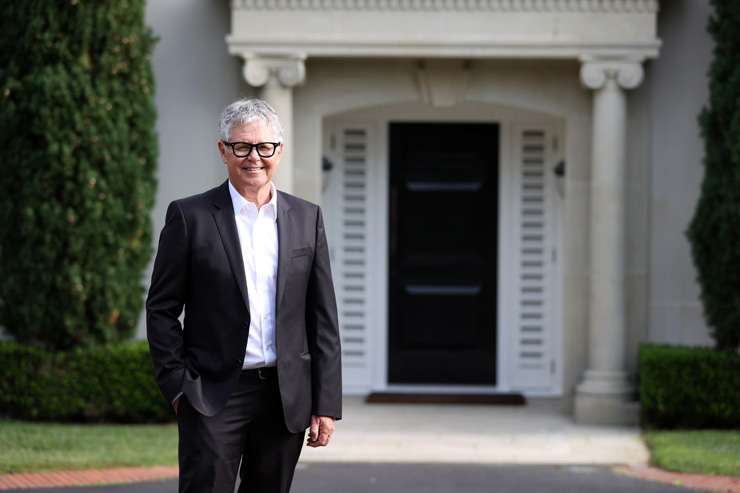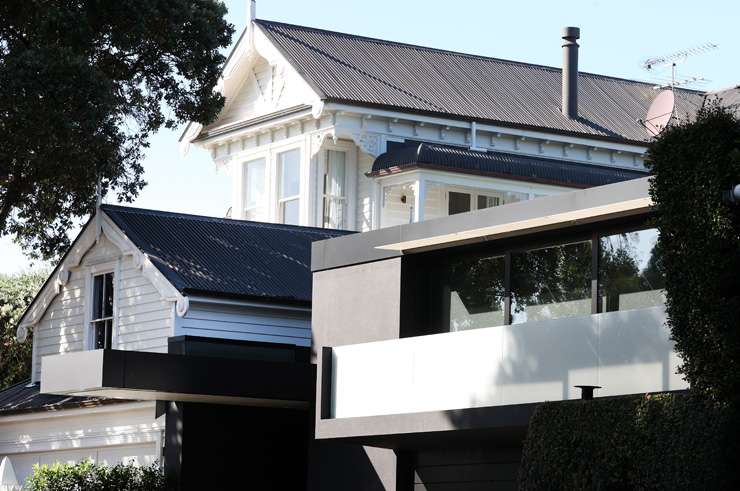Humans have been trying to figure out and avoid taxes for centuries.
Property is often targeted and attempts are made to avoid paying the full amount. It’s said when window taxes were introduced in Europe (the theory being the more windows you had the wealthier you were) some people bricked up windows to get around the tax.
Similarly, European taxes on land size led to the erection of tall, narrow buildings which got wider at the top.
Last month, Los Angeles introduced a “mansion tax”, to help fund housing for the homeless, with reports of some celebrities selling up ahead of it.
Start your property search
In New Zealand, a capital gains or wealth tax has again reared its head following last week’s IRD report, which found the very wealthy paid a lower amount of income tax than average New Zealanders.
Prime Minister Chris Hipkins has ruled out a wealth tax or capital gains tax in the coming Budget but the conversation around the possible introduction of one has again intensified.
Housing industry experts OneRoof spoke to say there is not much in the way of concern among wealthier buyers, although people said their comments were speculative because without any detail the impact on the housing market is not known.
Gary Wallace, who sells in Remuera and has amassed more than $1b in settled sales, thinks as far as property is concerned anyone who works hard to get ahead will be affected, not just high net worth buyers.
Read more:
- ‘Try before you buy’ bach sells for $10.5m
- Has your suburb beaten the house price slump?
- House next door to the Dotcom mega-mansion for sale
An outcome of a capital gains tax, which he describes as like an “envy” tax, could be people not selling property because “if you don’t sell you don’t pay tax.
“My gut feel is if they did bring in a capital gains tax, well, it’s just an incentive for people not to sell anything.”
Wallace says the wealthy people he deals with are comfortable paying their fair share, and says some of the super wealthy give away “huge” amounts of money.
“They're quite philanthropic in what they do so it all seems to go round in circles.”
Ollie Wall, of Wall Real Estate, which sells high end homes, says once people know the family home is excluded the talk turns to putting more money into bigger and fancier homes, “because it’s the safest place to keep your money without the Government getting their hands on it”.
He says the last time a capital gains tax discussion happened pre-election there was a spike in people who own multiple properties considering buying one large family home rather than having separate beach houses, rental houses and commercial property.
“Maybe a waterfront property instead of the bach and a house and an apartment; one big waterfront property with a tennis court or something that catered for everything.”
Wall was unaware, however, of anyone moving ahead with such a plan.

Bayleys Remuera agent Gary Wallace: “If they did bring in a capital gains tax, well, it’s just an incentive for people not to sell anything.” Photo / Fiona Goodall
Bayleys head of insights, Chris Farhi, says a wealth tax would be a concern among the wealthy but expects some of that concern would be tempered by the knowledge the next government would likely reverse it.
He also says a wealth tax would affect more than just the super wealthy so a concern would be protecting the ability of all New Zealanders to build their wealth.
“In particular, the wealth generated through home ownership is recognised as having a big impact on people as they enter retirement so you wouldn’t want to compromise that.”
According to Bayleys and its global partner Knight Frank, there were an estimated 3118 ultra-high net worth individuals in New Zealand as of 2021.
Those are people who are defined as having US$30m (NZ$49m) or more including their primary residence, while Australia has an estimated more than 20,000 such individuals.
According to the Bayleys Knight Frank Wealth Report from last year the biggest investment concerns for wealthy investors globally was inflation followed by tax and regulation.
Farhi says surveys show ultra-high net wealth households globally on average put around 32% of their wealth into their primary and secondary homes while around 21% of their other investable wealth goes into commercial property and around 13% into funds which invest in commercial property.

Houses in Auckland’s Herne Bay. The suburb saw a significant rise in big property transactions post-Covid. Photo / Fiona Goodall
That makes property a big asset class for the wealthy and Farhi says capital appreciation and capital preservation are two of their top priorities, with income generation a priority but a lower one.
He says people at this level are looking to build their wealth over time and preserve it for subsequent generations.
“Property is quite good for that because of the long-term resilience. Once you’ve acquired land there’s a good chance it’s not going to go away.”
Also important for the ultra-wealthy is purchasing better assets, such as trophy residential properties and top tier commercial properties, he says.
“If you're picking up a really good waterfront home or the top tier rural properties or commercial properties, they are highly attractive and they tend to have really good fundamentals that do protect their capital values over time.”
Farhi says overseas where taxes have been put in place which target wealth there has tended to be a surge in activity prior to the tax coming in, and that happened here to an extent with the bright-line requirements (where property investors have to pay income tax on gains from selling a residential property within a timeframe).
After the increase in activity, however, the market then settles into the new norm and continues to operate as usual, he says.
LA’s new mansion tax is another example of a surge of activity ahead of the tax coming in, Farhi says: “That’s probably the main recent tax measure that we’ve seen that’s really targeted the ultra-wealthy.”
He thinks if a wealth tax is introduced in New Zealand buyers at the higher end would be unlikely to be spooked, and probably shouldn’t be.
Such a tax would take a long time to implement and there would be complications to work out first, and also opposition parties wanting to remove it.
James Wilson, head of valuations for Valocity, OneRoof’s data partner, says when it comes to capital gains or wealth taxes there are a lot of “what if” questions to sort through first.
Some capital gains taxes are more simplistic, such as the bright-line test, but others are more comprehensive where the tax applies on an ongoing basis based on the property’s value.
That becomes “incredibly complex” as markets can soften and surge.
Wilson points out that despite popular belief, New Zealand is not a nation of housing speculators and says even investors have longer-term mindsets with the average length of home ownership around 6.9 years.

Valocity head of valuations James Wilson says property taxes based on values can be incredibly complex. Photo / Fiona Goodall
“If it were to be a capital gains tax based on capital gain at the time of sale, then given most of our investors are buying for long term rental yield it probably wouldn't have a significant impact on their buying behaviour.”
A tax applied on an ongoing basis throughout the ownership of the asset would have more impact on investors and could theoretically drive them towards other investments, such as businesses or shares.
But without the details, it’s hard to call, and Wilson also says there are examples of overseas markets where such taxes haven’t had the desired effect, pointing out there have long been variations of LA’s mansion tax.
“You look at big parts of Europe where they used to apply a land tax based on the size of your plottage and so the outcome you got there as you got homes which had a very small ground floor plottage and they're about 10 storeys high and they got wider as they went up because people try to avoid their share of tax – they were doing it to avoid the tax man.”
Kelvin Davidson, CoreLogic’s chief economist, also thinks if the family home is insulated there could be a switch out of rental investment towards people buying the biggest and most expensive family home they can.
Even so, the impact on the housing market and prices could remain relatively neutral, he says, although a result could be fewer rentals and more owner occupiers.
“There could be changes in the mix, I guess. You might see big family homes go up in value in relative terms as compared to smaller properties that otherwise might have been rentals - maybe.
“But I think the overall value of the housing stock may not necessarily move any differently than it otherwise would have done.”
Infometrics principal economist and chief executive Brad Olsen says a wealth tax, as opposed to a capital gains tax, would probably see people value assets differently because all of a sudden they would have to take the tax into account.
A capital gains tax could have a “chilling” effect on housing activity because people would not sell houses as much, though it’s unlikely the investment housing market would grind to a halt because the tax is only on gains.
“It's not like the entire value of the property would be taxed.
“It would make it more difficult, or it would make it more expensive, but equally if it's not getting taxed at the moment then you're getting a pretty good ride of it.”
- Click here to find properties for sale in New Zealand
















































































